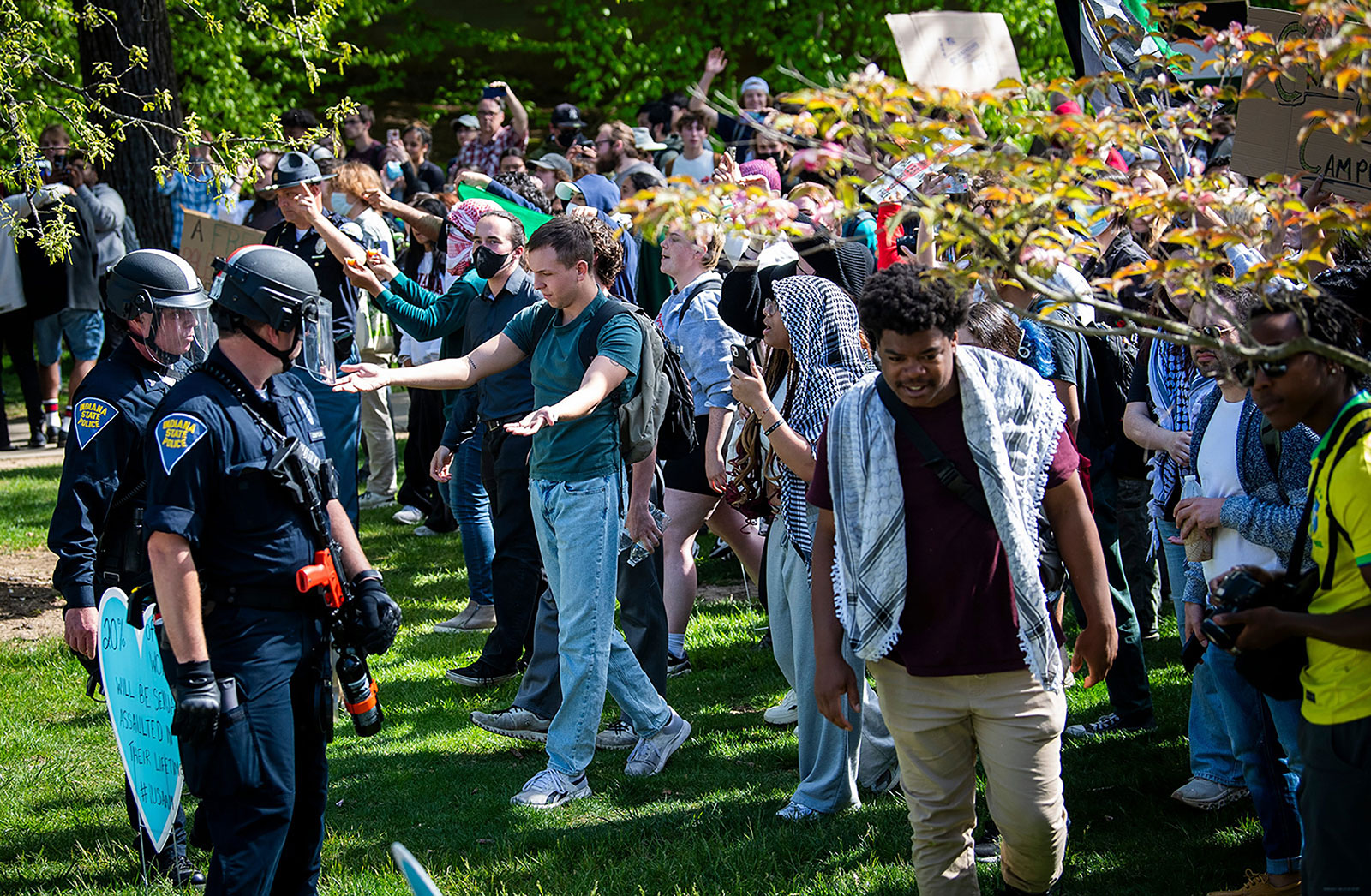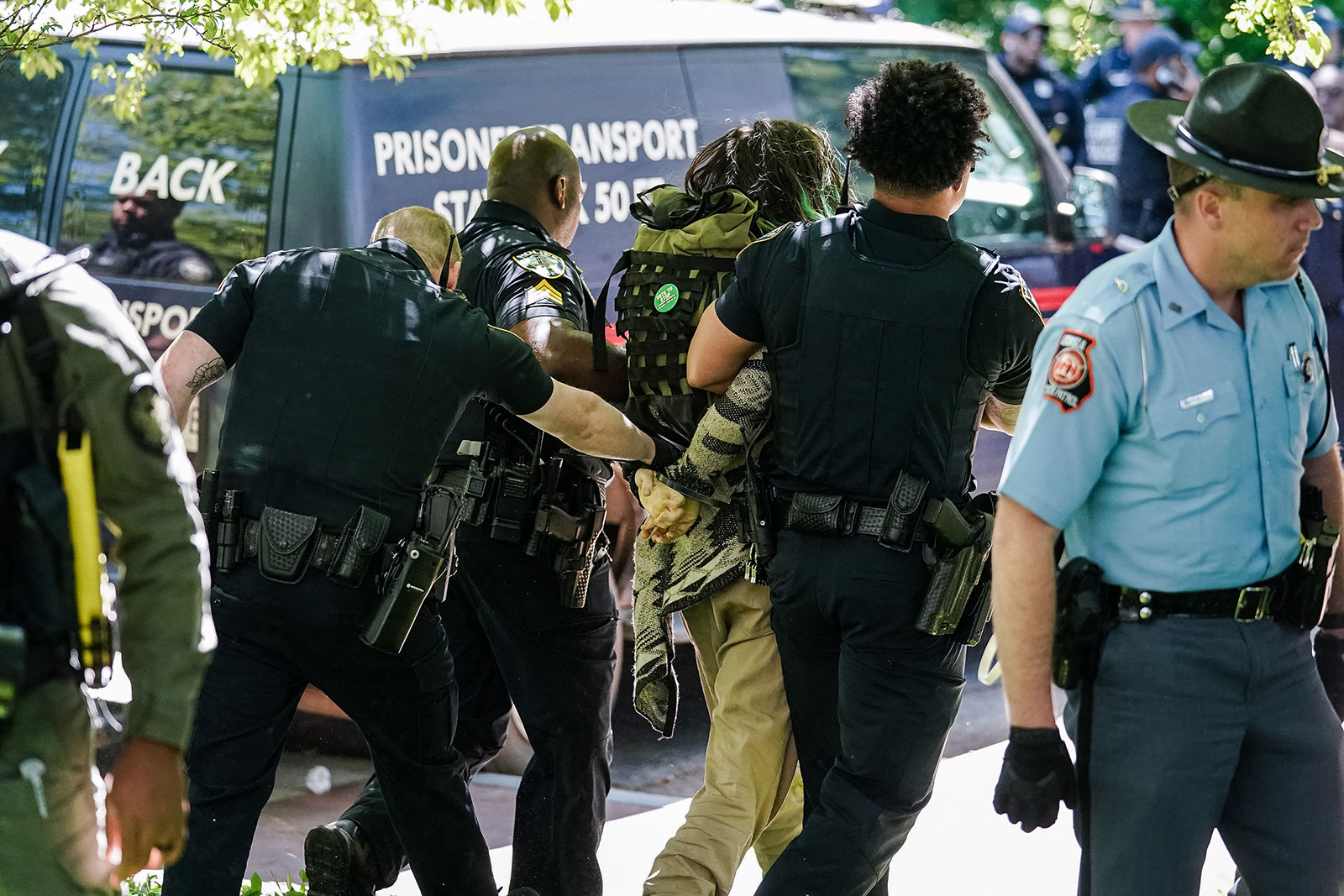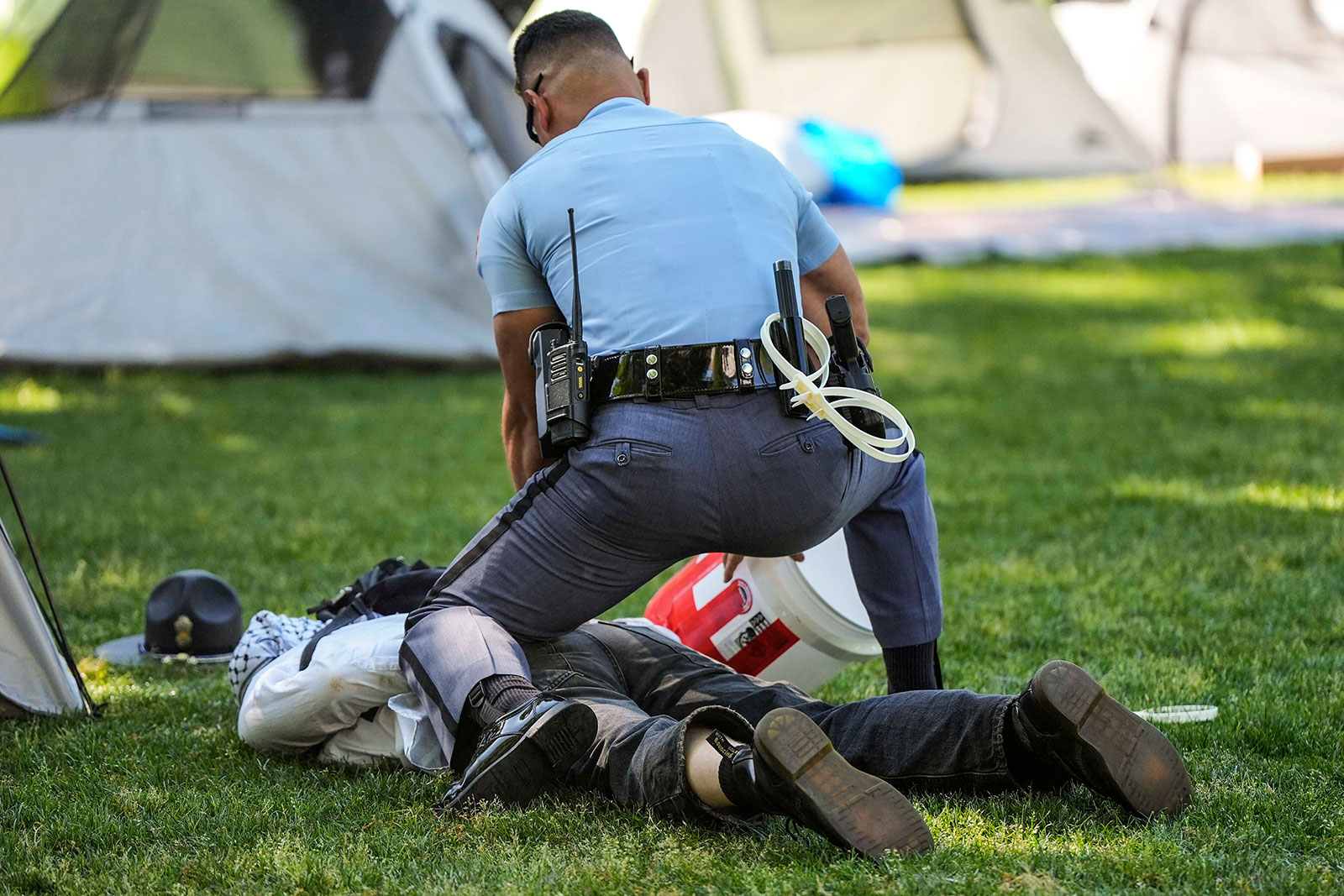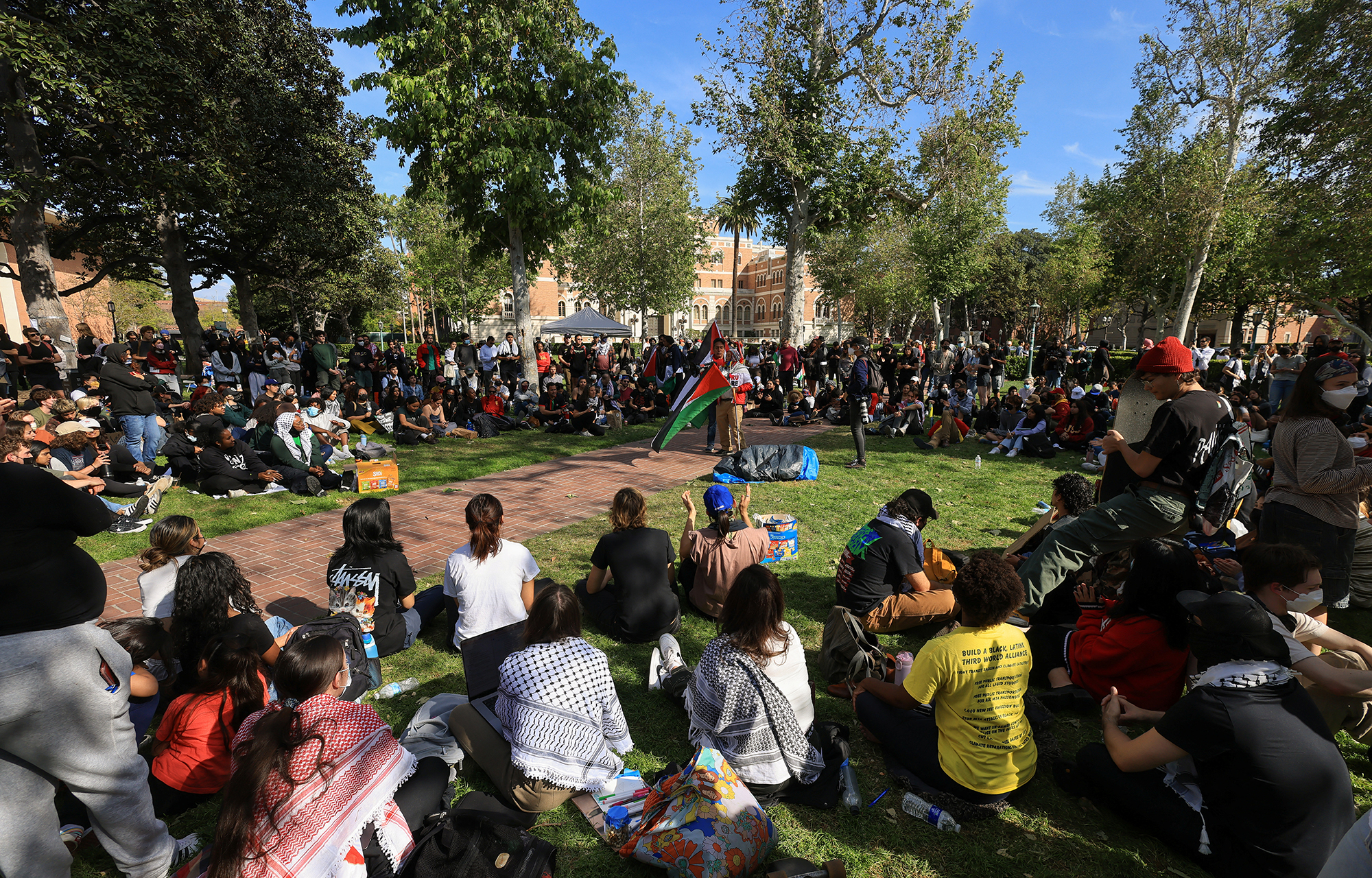
At least 33 people were detained on Indiana University’s campus Thursday following encampment protests.
The Indiana University Police and Indiana State Police warned the individuals protesting “numerous times” on Thursday morning and afternoon to remove their structures and they would be allowed to stay, according to a statement from the Indiana University Police Department.
“Following their refusal to comply with university policy, the group was advised to leave the area,” police said.
Officers gave a final warning at 3:46pm and at 3:57pm individuals who refused were detained and removed from the area.
33 people were taken to the Monroe County Justice Center and police continue to monitor ongoing activity on campus.
“Indiana University Bloomington is a campus where we encourage and respect free speech and open dialogue,” a university spokesperson said in a statement. “To ensure the safety and security of the IU community and to avoid disruption of university operations, expressive activity must be conducted in accordance with university free speech and events policies. This includes the enforcement of policies that require advanced approval for the installation of temporary structures.”






